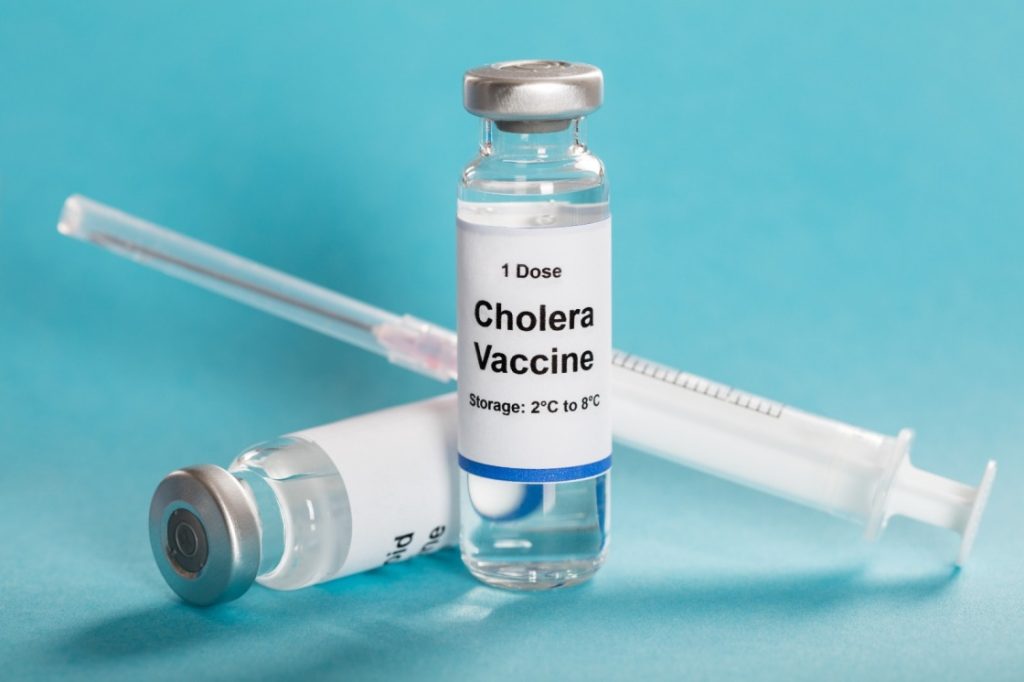Cholera is a serious bacterial infection that affects the intestines, causing severe diarrhoea and dehydration. It is caused by the bacterium Vibrio cholerae, which is typically found in contaminated water and food. Understanding the causes, symptoms and treatment options for cholera is essential for preventing its spread and ensuring prompt medical intervention.
Causes of Cholera
Cholera is contagious and primarily spread through the consumption of contaminated water or food. In areas with poor sanitation and inadequate access to clean water, the risk of cholera outbreaks is higher.
Vibrio cholerae bacteria thrive in unhygienic conditions, such as untreated sewage or water contaminated with faeces. When a person ingests food or water contaminated with the bacterium, they become infected and can develop cholera.
Symptoms of Cholera
The symptoms of cholera typically appear within a few days of infection and can range from mild to severe. The hallmark symptom of cholera is profuse watery diarrhoea, often described as “rice-water stool” due to its appearance.
Other common Cholera symptoms include vomiting, dehydration and muscle cramps. In severe cases, cholera can lead to rapid dehydration, electrolyte imbalances and shock, which can be life-threatening if not promptly treated.
Treatment Options for Cholera
Prompt treatment is important for managing cholera and preventing complications. The primary goal of Cholera treatment is to rehydrate the body and replace lost fluids and electrolytes. Oral rehydration solutions, which contain a precise balance of salts and sugars, are typically used to replenish fluids and electrolytes lost through diarrhoea and vomiting. In severe cases, intravenous fluids may be necessary to rapidly restore hydration.
Antibiotics may also be prescribed to shorten the duration of diarrhoea and reduce the severity of symptoms. Commonly used antibiotics for Cholera treatment include azithromycin, doxycycline and ciprofloxacin. However, antibiotic resistance is a growing concern and healthcare providers must carefully select the most appropriate antibiotic based on local resistance patterns.
In addition to medical treatment, Cholera preventive measures are essential for controlling the spread of cholera. Improving sanitation, ensuring access to clean water sources and promoting proper hygiene practices can help reduce the risk of cholera outbreaks.
Vaccination against cholera is also available in some regions and may be recommended for individuals at high risk of exposure, such as healthcare workers or travellers visiting cholera-endemic areas.
Cholera Vaccination
The cholera vaccine is a preventive measure against the bacterial infection caused by Vibrio cholerae. It works by stimulating the immune system to produce antibodies against the bacterium, reducing the risk of infection.
The vaccine is typically recommended for individuals travelling to cholera-endemic regions or those at high risk of exposure, such as healthcare workers. While not 100% effective, the cholera vaccine can significantly decrease the severity of symptoms and prevent complications associated with the disease.
Final Words
Cholera is a preventable and treatable disease, but it remains a significant public health concern in many parts of the world, particularly in areas with poor sanitation and limited access to clean water. By implementing Cholera preventive measures and providing timely medical care, we can effectively control cholera outbreaks and reduce the burden of this deadly disease on communities worldwide.
Book your cholera vaccine appointment at Touchwood Pharmacy in the UK today. Protect yourself from this bacterial infection and ensure your health while traveling or in high-risk areas.


























